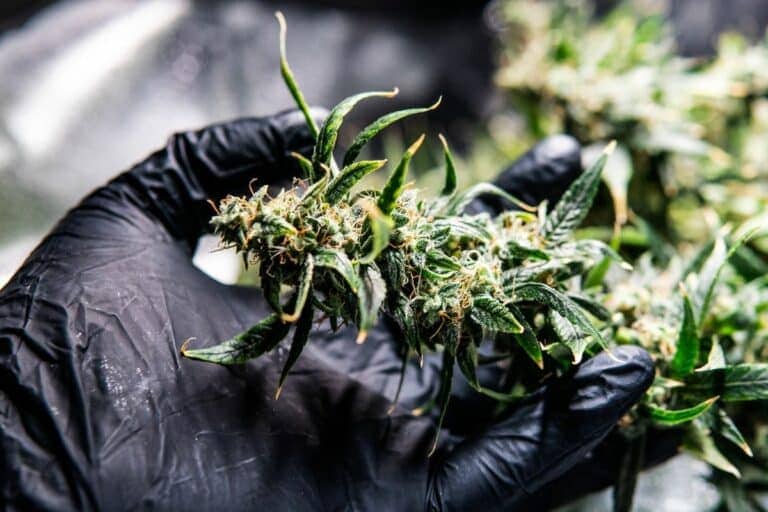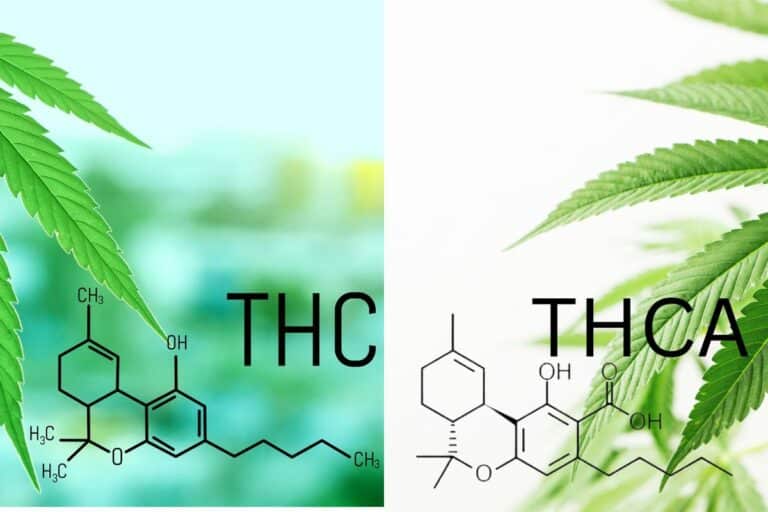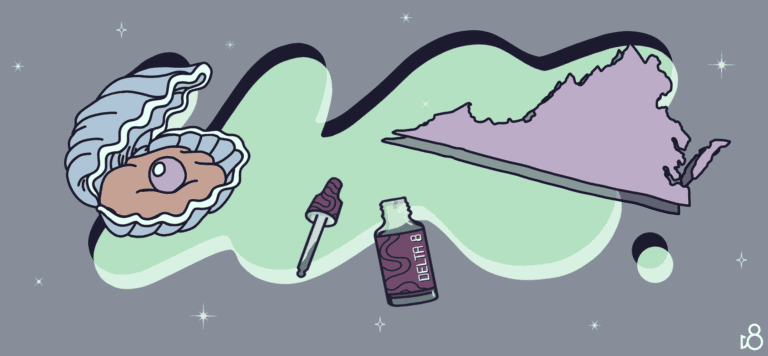Is Delta-11 Legal in Idaho? Navigating the Cannabis Laws
Cracking the code on cannabinoids like Delta-11 feels like trying to win a game of hide and seek in the pitch black. Every state plays by its own rules. Look at Idaho, for instance, where figuring out what’s above board and what’s not is like walking on really thin ice when winter turns to spring. Here’s a golden nugget to keep in your pocket: if it comes from hemp and has under 0.3% Delta-9-THC, then, by all accounts, it’s A-OK on a national level, cheers to the 2018 Farm Bill. But, Idaho decides to play it even safer. Why should you care? You’re on the brink of discovering how to navigate these tricky legal waters like you’ve got a map, all while diving deep into the vast world of cannabinoids.
Table of contents
Idaho statutes do not recognize the federal threshold for THC content in hemp and do not currently allow any amount of THC or its analogs. This means that, regardless of its derivation, if a substance contains any amount of THC or its analogs, such as Delta-11, it falls under the category of a controlled substance in the state. Therefore, even hemp-derived cannabinoids that might be considered legal under federal law are not permitted in Idaho if they contain THC.
Considering the ongoing discussions and legal changes surrounding cannabis and hemp derivatives across the country, it’s crucial for you to stay informed about the most current laws in your jurisdiction. If you are in Idaho and considering the purchase or use of products like Delta-11, consulting local laws or legal counsel is highly advisable to ensure compliance.
Understanding Delta 11
Before delving into the complexities of Delta 11, it’s essential for you to understand its chemical makeup and the effects it may have on your body compared to other cannabinoids like Delta 9 THC and Delta 8.
Chemical Composition and Effects
Delta 11 is one of the many cannabinoids found in the cannabis plant. Similar to its relatives, it interacts with your body’s endocannabinoid system, but it has a unique structure that could potentially alter its potency and effects. Although much is yet to be known about this compound, it is thought to provide psychoactive experiences that can lead to a sense of relaxation. Just like other THC variants, Delta 11 may have side effects, so cautious dosing is advisable.
Comparison with Delta 9 THC and Delta 8
Delta 9 THC is the most well-known and studied cannabinoid, famous for its strong psychoactive high. In comparison, Delta 8 THC is often described as providing a milder high with decreased psychoactive effects. Users report that Delta 8 can result in less paranoia and anxiety, potentially making it a more pleasant experience for some. Delta 11’s place within this spectrum is not fully understood, but if you’re familiar with the effects of Delta 9 or Delta 8, you can take them as points of reference when considering the potential effects of Delta 11. Keep in mind that the legal status of these cannabinoids can vary, and it’s important to check your local laws regarding their use.
Legal Framework in Idaho
In Idaho, the legal status of Delta-11 and similar compounds hinges on both state and federal regulations. Here’s what you need to know about the laws that govern these substances.
Idaho State Laws
Under Idaho law, cannabis derivatives, regardless of their specific form, are generally considered controlled substances. This means that any compound, including Delta-11, that is derived from the cannabis plant, is likely to be subject to strict state regulations and may not be legal to possess, distribute, or sell without appropriate authorization. Idaho stands as one of the stricter states when it comes to the regulation of such substances, often aligning with federal guidelines laid out in the Controlled Substances Act.
Federal Law and the 2018 Farm Bill
Federally, the 2018 Farm Bill created a distinction between hemp, defined as a cannabis plant containing less than 0.3 percent THC on a dry weight basis, and marijuana, which refers to cannabis over that threshold. This legislation removed hemp from the definition of marijuana in the Controlled Substances Act, which effectively decriminalized the cultivation and sale of hemp at the federal level. However, derivatives such as Delta-11 may or may not be legal depending on their specific THC content and whether or not they align with both state and federal regulations. It is essential for you to review both sets of laws to fully understand the legality of Delta-11 in Idaho.
Legalities of Different THC Products
When you’re navigating the complex landscape of THC products, understanding the legal distinctions between hemp- and marijuana-derived compounds is crucial, especially as it pertains to their availability and legality in various states, like Idaho.
Hemp-Derived vs. Marijuana-Derived
Hemp-Derived Cannabinoids: Hemp plants, by legal definition, contain 0.3% or less delta-9 THC on a dry weight basis. Products derived from hemp, including cannabinoids like CBD, are federally legal under the 2018 Farm Bill. However, individual states retain the authority to regulate or ban these products. For example, as suggested by an analysis, Idaho does not permit the production of hemp with any amount of delta-9 THC.
Marijuana-Derived Cannabinoids: These are extracted from marijuana plants that typically have higher concentrations of delta-9 THC. The legal status of marijuana-derived products varies widely between states but they remain illegal at the federal level. You must check your state’s laws to determine if these products are legal for medicinal or recreational use.
Delta 11 within the Context of Isomers
- THC Isomers: Isomers like delta-8, delta-10, and delta-11 THC are chemically similar to delta-9 THC but can differ in legal status. While the 2018 Farm Bill’s wording allows for the legality of hemp-derived isomers, state laws may not align.
- Delta-11 THC: Delta-11’s legal status can be particularly ambiguous. Much like the issues surrounding delta-8, it often depends on whether it’s sourced from hemp or marijuana and the specific regulatory framework of the state you’re in. In Idaho, where cannabis laws are more stringent, the legality of delta-11, regardless of its source, should be approached with caution.
Specifics of Delta-11 Legality
In exploring the legality of Delta-11, it’s crucial to understand both state and federal regulations that govern its use and classification.
Legal Status Across Different States
While the legal status of Delta-11 may vary from state to state, certain parallels are seen in the handling of related compounds like Delta-8. For example, Delta-8 is a hemp derivative somewhat similarly to Delta-11, and it’s legal in states such as Florida and Alabama, where state law aligns with federal guidelines on hemp-derived substances. On the other hand, states like California and Colorado have their specific regulations that may differ from the federal stance, potentially affecting the legality of compounds like Delta-11.
- Florida: Permits hemp derivatives, likely to include Delta-11 following Delta-8 precedence.
- California: Has distinct state laws that might impact Delta-11 legality.
- Alabama: Aligns with federal law, indicating possible legality for Delta-11.
Federal Classification and DEA Stance
At the federal level, Delta-11’s legal status is influenced by its classification under the Controlled Substances Act. Similar to other THC isomers, if Delta-11 is derived from hemp and contains no more than 0.3% THC, it’s considered federally legal. The DEA classifies substances that are synthetically derived tetrahydrocannabinols as controlled substances, which may affect the legal status of synthetic Delta-11 compounds.
- Federally Legal: Hemp-derived with THC below 0.3%.
- Controlled Substances: If synthetic, potentially classified by the DEA as controlled.
Impact on Consumers and Industry
In Idaho, the conversation around Delta-11 and its legal status affects both consumers and industry, touching on safety, accessibility, and potential legal repercussions. You need to consider these factors carefully before engaging with these products.
Quality and Safety Considerations
When it comes to Delta-11, like any other cannabinoid product, quality and safety are paramount. You should ensure that any products you use have been tested by reputable labs and comply with stringent regulations. Although federal law indirectly allows certain hemp-derived compounds, the ambiguity means quality assurance is not guaranteed, especially when state laws differ on their legality.
Availability and Consumer Access
Your access to Delta-11 in Idaho might be limited due to legal uncertainties. While some states permit the sale of psychoactive tetrahydrocannabinol (THC) compounds derived from hemp, Idaho has stricter regulations. This influences the availability of products like edibles and oils, potentially pushing consumers to seek them from unregulated markets.
Legal Consequences and Penalties
Navigating the law is crucial; being uninformed can result in serious legal consequences. If found in possession of a substance that is considered illegal, you could face substantial fines and penalties. Always stay updated with the latest state regulations and federal laws to ensure that you are in compliance, particularly as the legal landscape evolves.
Advancements and Developments in Cannabis Regulation
Recent regulatory movements have made considerable shifts in how cannabis, its extracts, and various isomers like delta-10 and delta-11 THC are perceived legally. You will find that both the science behind cannabis and legislative frameworks are continuously evolving.
Science and Innovation
Innovation in the cannabis sector is robust, particularly in the extraction and refinement processes. This has led to the discovery and commercialization of various cannabinoids, including delta-10 THC and the less known delta-11 THC. The science has also delved into isomerization, where one molecule is transformed into another, thus expanding the range of THC variants. Your understanding of cannabis’s therapeutic potential has been influenced by medical-grade CBD products as well as the development of THC isomers which have different effects and legal standings.
Legislative Changes and Trends
Legislative trends are reflecting a complex attitude towards cannabis. Across states, there’s a swing towards both medical and recreational legalization. However, Idaho remains one of the states with stringent cannabis laws. The federal definition classifies marijuana as a Schedule I drug, though it has approved certain hemp-derived products following the Farm Bill, setting the legal threshold at a delta-9 THC concentration of 0.3% on a dry weight basis. Delta-10 and other isomers like delta-11 THC products often fall into a gray area due to their derivation from legal hemp CBD through isomerization, but their legality varies by state. Presently, Idaho law does not distinguish between marijuana and its psychoactive extracts, making all forms of THC controlled substances, which also can implicate delta-11 THC products as illegal within state borders.
Consumer Guidance
When considering the purchase of cannabinoid products in Idaho, it’s important to understand the intricacies of product labels and the interplay between state and federal regulations. This will help you make informed decisions.
Understanding Product Labels
When you’re examining cannabinoid products, pay close attention to the labels. Labels should clearly indicate the type of cannabinoids present and their concentrations. For instance, products containing CBD (cannabidiol) will list the amount typically in milligrams. Given that hemp-derived products are federally legal under the Farm Bill if they contain no more than 0.3% Delta-9 THC, it’s essential to verify that any product adheres to this threshold to ensure its legal status. Delta-11 THC, as a less common cannabinoid, may not be explicitly listed, and its legal status can vary by state. Check the FDA guidelines to understand the testing and quality assurance of the products.
How to Navigate State vs. Federal Regulations
Navigating the complex landscape of state versus federal regulations on cannabinoids can be challenging. While hemp-derived products are broadly federally legal when compliant with the Farm Bill, each state has the authority to enforce its own laws regarding cannabinoids. For example, if a product is federally legal, this doesn’t automatically mean it’s legal in Idaho. Idaho law is notably stricter on THC content, prohibiting any amount of THC or its derivatives without exception, which contrasts with the federal threshold of 0.3% THC. Therefore, it’s crucial to consult Idaho’s state laws to ensure compliance. Be aware that despite federal legality, local laws have precedence and they govern the legality of substances like Delta-11 THC within the state.
Frequently Asked Questions
Navigating the legal landscape of cannabinoids can be complex. This section answers key questions about Delta-11’s legal status and properties in Idaho and beyond, ensuring you have the precise information you need.
What are the legal requirements for possessing cannabinoid analogues like Delta-11 in Idaho?
In Idaho, any substance that contains any amount of THC, including Delta-11, remains illegal. This encompasses all cannabinoid analogues that may produce psychoactive effects similar to Delta-9 THC.
Can you experience psychoactive effects from Delta-11 similar to Delta-9 THC?
Yes, Delta-11 is reported to produce psychoactive effects that are similar to Delta-9 THC, the primary psychoactive compound in marijuana.
Are there any known differences in potency between Delta-11 and Delta-9 compounds?
While there is limited research specifically on Delta-11’s potency, it is generally believed that its psychoactive effects are comparable to those of Delta-9 THC; however, individual experiences may vary.
In states where Delta-11 is permitted, can it be detected on standard drug screenings?
Delta-11 could potentially be detected on drug tests designed to screen for THC, as metabolites may be similar to those resulting from Delta-9 THC consumption.
How does the legal status of Delta-11 compare across various states in the U.S.?
The legal status of Delta-11 varies by state, with some states allowing it under federal guidelines for hemp-derived products, while others have stricter laws that may classify it similarly to Delta-9 THC.
What should be considered when looking for retail locations that offer Delta-11 products?
When searching for Delta-11 products in permissible locations, it is important to verify the retailer’s credibility, the product’s source, and compliance with local and state laws regarding cannabinoid content and legality.







